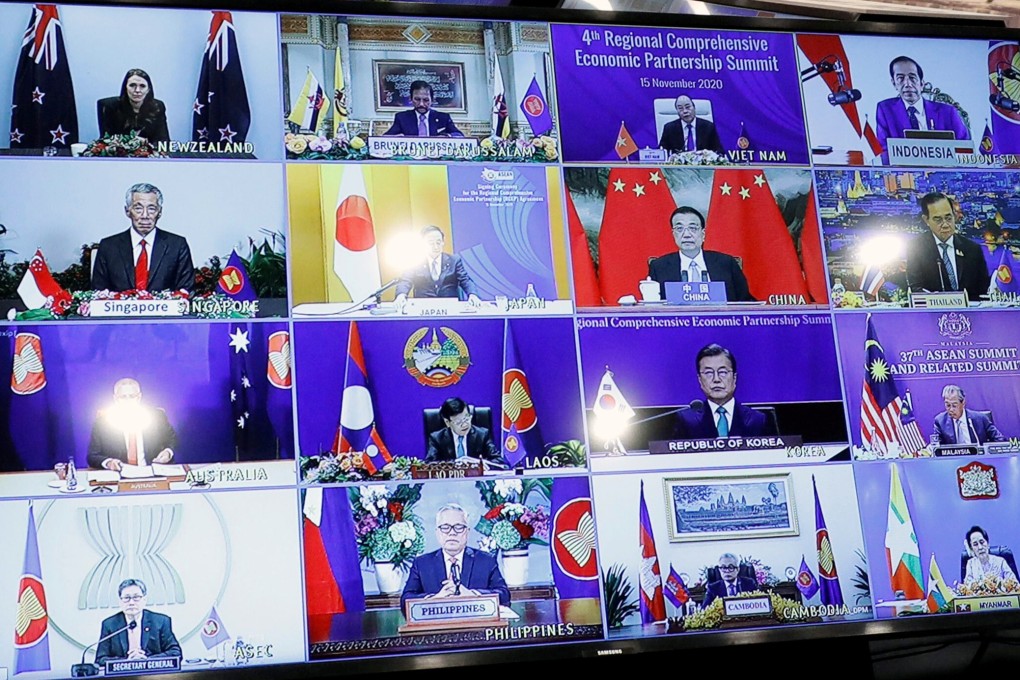China’s marginal RCEP gains will not offset trade war impact on economy, studies show
- Studies show the benefits of Regional Comprehensive Economic Partnership (RCEP) will not outweigh the negative impact of the long-running US trade war on China’s economy
- However, analysts agree the trade pact, which covers 30 per cent of the global economy, is far more strategically significant than in direct economic impact

China may claim a symbolic victory in the signing of the world’s biggest trade deal in the face of ongoing US disinterest in multilateralism, but the direct economic benefits will be marginal, studies show.
The trade agreement, initiated by the Association of Southeast Asian Nations (Asean) in 2012 but often regarded as a China-led counterpart to the Comprehensive and Progressive Agreement for Trans-Pacific Partnership (CPTPP), covers nearly one third of the world’s population and gross domestic product (GDP).
In June, researchers at the Peterson Institute for International Economics (PIIE) found that RCEP, a trade deal that took seven years to negotiate, would add 0.4 per cent to China’s real income by 2030, while the trade war would trim 1.1 per cent, should current hostilities persist.
It will make China much more integrated with the rest of Asia, and we need to look at what that might generate in the longer term
A study conducted last year by researchers at the University of Queensland and the Indonesian Ministry of Finance found that RCEP would add just 0.08 per cent to China’s economy by 2030. Over the same period, the trade war would slice 0.32 per cent from its GDP.